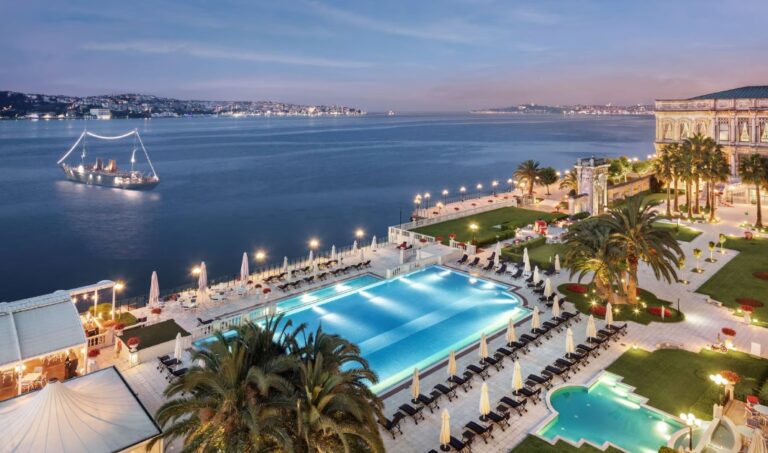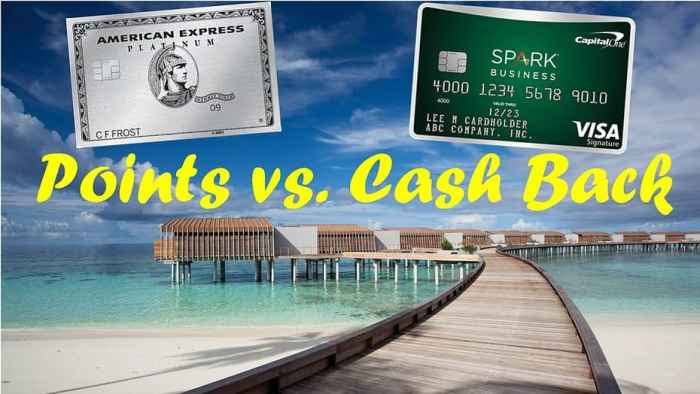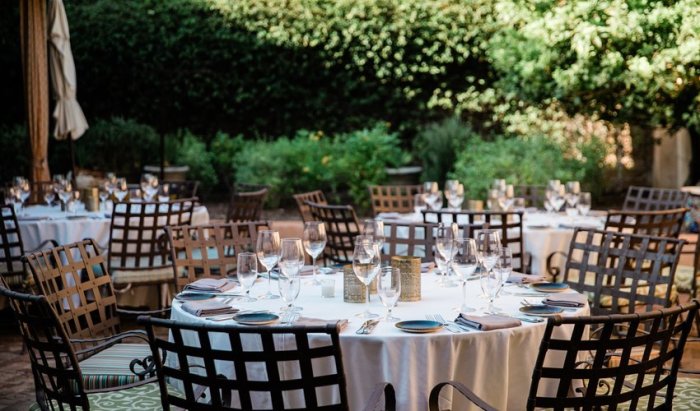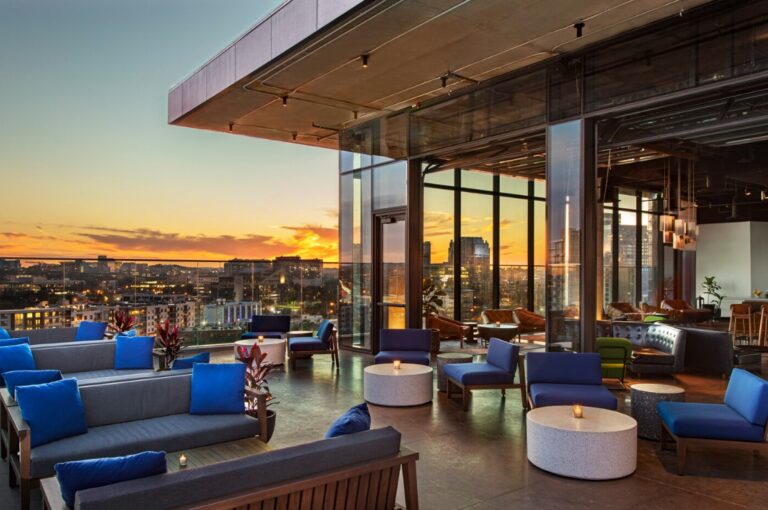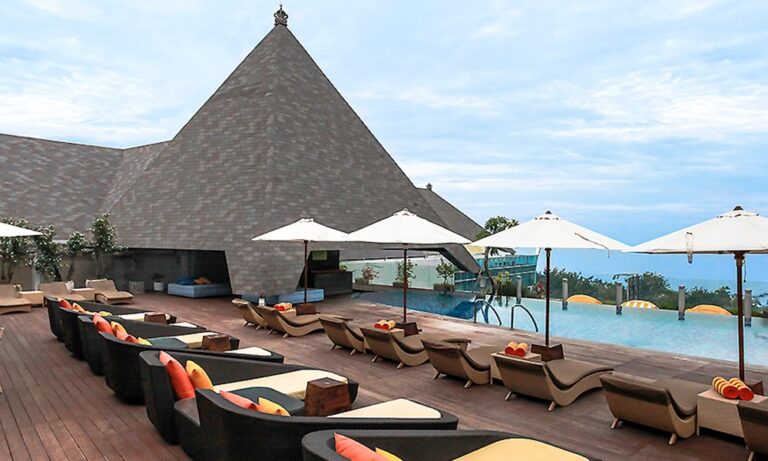Hotels With Wine Tasting Events And Vineyard Access
Hotels with Wine Tasting Events and Vineyard Access invite guests to immerse themselves in a delightful journey of taste and experience. These unique events not only enhance the enjoyment of wine but also offer a glimpse into the artistry of winemaking. From cozy hotel settings to sprawling vineyards, the combination creates unforgettable memories for wine lovers and novices alike.
Imagine sipping exquisite wines while surrounded by lush vineyards, the sun setting in the background. Many hotels have embraced this concept, hosting diverse wine tasting events that cater to all preferences, ensuring that every guest finds something to savor.
Overview of Hotels with Wine Tasting Events
Wine tasting events hosted by hotels offer guests a refined experience where they can explore various wine selections, often paired with culinary delights. These events allow visitors to immerse themselves in the local culture and the rich heritage of winemaking. With an elegant setting and knowledgeable hosts, wine tasting serves as a delightful avenue for guests to engage their senses and deepen their appreciation for wine.The significance of wine tasting in enhancing guest experiences cannot be overstated.
It provides an opportunity for bonding over shared tastes and preferences, while also introducing guests to the nuances of different wines. Such events often feature expert sommeliers who guide participants through the tasting process, explaining flavor profiles and the art of wine selection. This interactive experience creates memorable moments that go beyond standard hotel offerings, fostering a connection between the guests and their surroundings.
Renowned Hotels for Wine Tasting Events
Several hotels are celebrated for their exceptional wine tasting experiences, making them popular destinations for wine enthusiasts. These hotels often collaborate with local vineyards to provide an immersive experience that highlights the region’s viticulture. A few notable examples include:
- Hotel Healdsburg
-Nestled in the heart of Sonoma County, this hotel boasts a dedicated wine tasting room featuring wines from nearby vineyards. Guests can enjoy curated tasting flights paired with artisanal cheeses. - The Ritz-Carlton, Napa Valley
-This luxurious hotel offers exclusive wine tasting events, including vineyard tours and private tastings of their own label wines, surrounded by picturesque vineyard landscapes. - Bardessono Hotel and Spa
-Located in Yountville, this eco-luxury hotel presents intimate wine tasting experiences, often hosted on their sustainable rooftop garden, showcasing local wines and gourmet bites.
These hotels not only provide exceptional accommodations but also elevate the overall guest experience through their thoughtfully curated wine tasting events, allowing visitors to indulge in the rich tapestry of local wine culture.
Benefits of Vineyard Access for Guests
Vineyard access offers a unique and enriching experience for guests staying at hotels situated near these picturesque landscapes. The opportunity to step directly into the world of winemaking elevates a visit from a simple getaway to an immersive adventure. Guests can explore the stunning beauty of the vineyards, learn about the intricacies of grape growing, and indulge in the flavors of the region all at their fingertips.Having direct access to vineyards enhances the overall stay by allowing guests to interact with the wine-making process firsthand.
This interaction fosters a deeper appreciation for the art of winemaking and provides a sensory journey that can be both educational and enjoyable. From exploring the rows of grapevines to participating in tastings right where the grapes are grown, guests can create memorable experiences that are often hard to replicate in traditional tourist settings.
Guided Vineyard Tours Offered by Hotels
Many hotels capitalize on their proximity to vineyards by including guided tours as part of their services. These tours not only provide insights into the viticulture process but also offer a personalized touch to the experience. Guests can expect to learn about the specific grape varieties cultivated in the region, the techniques used in winemaking, and the history of the vineyard itself.
Some noteworthy hotels that provide such enriching experiences include:
- The Vineyard Hotel in South Africa: This hotel features a vineyard on-site, offering guided tours, tastings, and even harvest experiences during the season.
- Hotel Les Mars in California: Located in the heart of the Napa Valley, guests can enjoy exclusive tours of renowned vineyards, paired with exquisite culinary experiences.
- Château de Pizay in France: Guests can partake in guided tours through the estate’s vineyards, learning about the biodynamic approach to winemaking used on the property.
These tours are often complemented by tastings, allowing guests to savor the wines produced right where they stand. The combination of stunning views and the rich, aromatic experience of wine tasting creates an unforgettable stay that nourishes both the palate and the soul.
“A vineyard visit is more than just tasting; it’s an exploration of passion, tradition, and the land.”
The ability to access vineyards directly while staying at these hotels means that guests are not just passive observers but active participants in the world of winemaking. It enriches their overall experience, making each stay unique and memorable.
Types of Wine Tasting Events Offered
Wine tasting events have become an essential part of the guest experience at many hotels, bringing the joy of wine appreciation directly to visitors. These events not only educate guests about wine but also enhance their stay with unique experiences. By providing access to wines from local vineyards, hotels are able to offer a memorable journey for wine lovers and novices alike.Various formats of wine tasting events are available, each catering to different preferences and interests.
Guests can explore a range of wines through expertly curated experiences, designed to highlight the diversity and richness of wine culture. Below are some popular types of wine tasting formats offered at hotels.
Popular Wine Tasting Formats
Each wine tasting format provides an opportunity for guests to deepen their appreciation of different wines. Understanding these formats enhances the overall experience and allows guests to choose the event that best suits their interests.
- Vertical Tastings: This format involves tasting different vintages of the same wine from a single producer. It allows guests to explore how a wine evolves over time, showcasing variations in flavor and complexity.
- Horizontal Tastings: In horizontal tastings, guests sample the same vintage from different producers. This format highlights the influence of terroir and winemaking techniques, giving insight into regional characteristics.
- Blind Tastings: Guests taste wines without knowing their identities, challenging their palates to identify aromas and flavors. This format encourages a fun and engaging atmosphere while educating participants on their tasting skills.
- Themed Tastings: These events focus on specific themes, such as varietals (e.g., Pinot Noir, Chardonnay) or regions (e.g., Bordeaux, Napa Valley). Guests gain a deeper understanding of the unique characteristics that define each theme.
- Food Pairing Tastings: This format combines tasting wines with carefully selected food pairings. It emphasizes the harmony between wine and food, showcasing how each enhances the other’s flavors.
Hosting Wine and Food Pairing Events
Wine and food pairing events are a popular choice for hotels, allowing guests to experience the synergy between culinary creations and fine wines. Organizing these events involves careful planning to ensure a memorable experience for participants.When hosting wine and food pairing events, hotels typically focus on the following aspects:
- Menu Selection: Chefs create dishes that complement the selected wines, considering flavor profiles, textures, and aromas. Seasonal ingredients often enhance the experience, aligning with local wine offerings.
- Wine Selection: Sommeliers or wine experts choose wines that pair well with the menu, ensuring a balance between flavors. They may also provide insights into each selection, enriching the guest experience.
- Presentation: The visual aspects of the event, from table setting to plating, are essential. Aesthetic presentation enhances the overall enjoyment and adds to the ambiance of the tasting.
- Guided Experience: Knowledgeable hosts or sommeliers guide guests through the tasting process, explaining wine characteristics and food pairings. This interactive element fosters engagement and education.
- Feedback and Interaction: Encouraging guests to share their thoughts on the pairings creates a lively discussion, enhancing the communal experience of wine tasting.
Wine tasting events at hotels elevate guests’ experiences, inviting them to explore the intricate world of wine and food pairings in a sophisticated yet approachable manner.
Target Audience for Wine Tasting Events
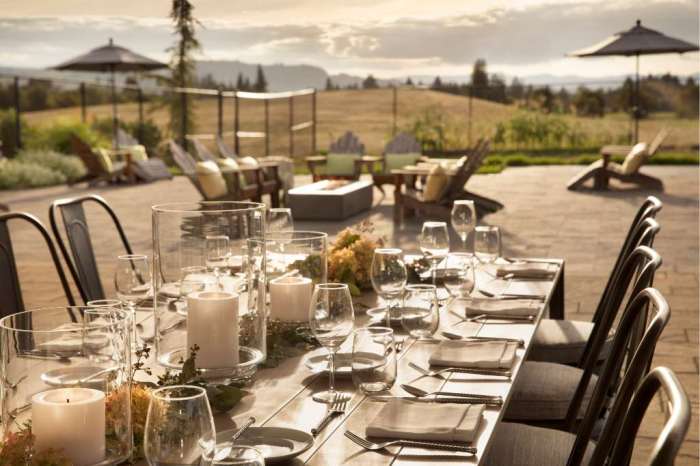
Source: travelcurator.com
Wine tasting events attract a diverse group of individuals, each with unique interests and preferences. This audience typically includes wine enthusiasts, casual drinkers looking for new experiences, and those seeking a romantic getaway or celebration. Understanding these demographics helps hotels curate their offerings to ensure an unforgettable experience for guests.The demographic groups that are most likely to engage in wine tasting events include millennials, affluent travelers, and couples celebrating special occasions.
These groups often seek out unique experiences and are willing to invest in luxurious accommodations that offer vineyard access. By recognizing the characteristics of these demographics, hotels can tailor their marketing strategies and event offerings to better attract wine lovers.
Demographic Groups Interested in Wine Tasting
The following demographic groups are commonly drawn to wine tasting events:
- Millennials: This tech-savvy generation values experiences over material possessions. They often seek out trendy destinations, making them a prime target for innovative wine tasting events that incorporate social media engagement.
- Affluent Travelers: Wealthy individuals and couples are inclined towards luxurious experiences. They appreciate fine dining and exclusive events, making them a perfect match for upscale wine tasting experiences that include private vineyard tours.
- Couples Celebrating Special Occasions: Many couples choose wine tasting as a romantic outing for anniversaries, engagements, or honeymoon trips. Creating intimate and memorable experiences tailored to these guests can lead to lasting impressions.
Understanding the preferences of these segments allows hotels to create targeted promotions and special packages that resonate with their desires.
Tailoring Offerings for Wine Enthusiasts
Hotels can enhance their appeal to wine enthusiasts by customizing their offerings to align with guests’ preferences. This strategy can significantly boost guest satisfaction and encourage repeat visits. Key approaches include:
- Exclusive Wine Pairing Dinners: Organizing gourmet dinners with wine pairings can attract food and wine lovers, providing a memorable culinary experience.
- Educational Workshops: Offering masterclasses on wine tasting or vineyard management can engage guests who want to deepen their knowledge and appreciation for wine.
- Personalized Wine Tours: Tailoring vineyard tours to include private tastings or behind-the-scenes access can create special moments for guests, enhancing their stay.
These tailored offerings can create a unique selling proposition for hotels, making them stand out in a competitive market.
Profile of the Ideal Guest
The ideal guest for hotels with vineyard access is typically characterized by the following traits:
- Age: Generally between 30 and 55 years old, with a stable income that allows for discretionary spending on travel and experiences.
- Interests: Passionate about food and wine, enjoys culinary experiences, and seeks opportunities for learning and exploration during their travels.
- Travel Behavior: Prefers short getaways to scenic locations, values unique experiences over traditional tourist attractions, and often travels in pairs or small groups.
By understanding these characteristics, hotels can create marketing strategies that appeal directly to their ideal guests, ensuring a memorable experience at their wine tasting events.
Marketing Strategies for Hotels with Wine Tasting
Marketing wine tasting events at hotels requires a targeted approach to attract the right clientele. By employing various strategies, hotels can effectively showcase their unique offerings and tap into the growing interest in wine tourism. The goal is to create an inviting atmosphere that encourages potential guests to immerse themselves in the rich experience of wine tasting while enjoying the luxurious accommodations that the hotel provides.One of the most effective ways to promote wine tasting events is through engaging marketing strategies that leverage both traditional and digital platforms.
Social media has emerged as a powerful tool in this domain, allowing hotels to reach a wide audience of wine enthusiasts and travel aficionados. By curating visually appealing content and sharing stories that highlight the wines, the vineyard experience, and the ambiance of the hotel, establishments can foster a strong connection with potential guests.
Utilization of Social Media for Engagement
Social media platforms provide an excellent avenue for hotels to engage with guests interested in wine tourism. By creating a robust online presence, hotels can share updates about wine tasting events, showcase the vineyard and its offerings, and interact with followers in real-time. This direct engagement helps build a community of wine lovers who may become loyal customers.To effectively utilize social media, hotels can implement the following strategies:
- Visual Storytelling: High-quality images and videos of wine tastings, vineyard tours, and culinary pairings can evoke emotions and entice potential guests. Captivating visuals provide a glimpse into the unique experiences that await them.
- Engaging Content: Regularly posting informative content about different wine varieties, tasting techniques, and the history of the vineyard can heighten the interest and knowledge of followers. This positions the hotel as an authority in wine tourism.
- Promotions and Giveaways: Special offers or contests on social media can incentivize followers to participate and book a stay. For instance, offering a complimentary wine tasting for every booking made through social media can boost engagement and conversion rates.
- Customer Testimonials: Sharing positive reviews and experiences from previous guests can foster trust and encourage new customers to visit. Highlighting authentic stories can resonate with potential guests looking for a genuine experience.
Successful marketing campaigns from hotels exemplify the power of these strategies. For example, a boutique hotel in Napa Valley launched a “Wine Wednesday” promotion on Instagram, where guests could share their experiences with the hashtag #WineWednesdayAt[HotelName]. This not only increased their engagement but also created a community around the hotel, leading to a noticeable uptick in bookings. Another hotel utilized Facebook Live to host virtual wine tastings featuring local vintners, attracting an audience that later converted into on-site visitors once travel restrictions eased.By harnessing these marketing strategies, hotels with wine tasting events can effectively attract and engage guests, creating memorable experiences that enrich their stay while promoting the beauty and culture of wine tourism.
Coordinating Wine Tasting Events
Organizing a wine tasting event at a hotel is an enriching experience that not only showcases fine wines but also connects guests with the art of winemaking. Thoughtful planning and execution ensure that guests leave with memorable experiences and a deeper appreciation for wine. Here are the essential steps for creating a successful wine tasting event.
Steps for Organizing a Successful Wine Tasting Event
To execute a wine tasting event effectively, several key steps must be followed. Each step contributes to the overall success and enjoyment of the event:
1. Define the Event’s Purpose
Determine whether the event is for education, entertainment, or promotion. This will guide all subsequent decisions.
2. Select a Date and Time
Choose a date that does not conflict with major holidays or local events. Evening events often attract more attendees.
3. Choose the Venue
Utilize hotel spaces that are inviting and conducive to a relaxed atmosphere, such as a garden, terrace, or elegant dining area.
4. Plan the Wine Selection
Collaborate with local wineries to curate a diverse selection of wines that cater to different palates. Aim for a mix of red, white, and sparkling wines.
5. Develop a Tasting Menu
Include detailed information about each wine, such as flavor profiles, food pairings, and winemaker insights.
6. Promote the Event
Use social media, newsletters, and local press to generate interest and drive ticket sales.
7. Staff Training
Train hotel staff on wine knowledge and service etiquette to enhance guest experience during the tasting.
8. Gather Feedback
After the event, collect feedback from attendees to improve future wine tasting events.
Checklist of Essentials for Hosting a Wine Tasting Experience
An effective checklist ensures that no detail is overlooked while preparing for the event. Below are essentials that need to be organized:
Wine Selection
A curated list of wines, with a mix of varietals and regions.
Glassware
Ensure adequate supply of wine glasses, preferably ISO-standard for proper tasting.
Tasting Notes
Provide printed or digital tasting cards that detail each wine’s characteristics.
Spit Buckets
Essential for guests who wish to sample without consuming too much alcohol.
Food Pairings
Arrange small bites or cheese platters to complement the wines.
Staffing
Ensure knowledgeable staff are available to assist guests throughout the tasting.
Decor
Create an inviting ambiance with suitable decor that reflects the vineyard theme.
Marketing Materials
Use flyers or digital promotions to attract guests.
Importance of Collaborating with Local Wineries
Collaborating with local wineries significantly enhances the quality and authenticity of the wine tasting experience. By partnering with local winemakers, hotels can provide their guests with unique insights and stories behind the wines served. This collaboration fosters community relations and supports local businesses.
Quality Assurance
Local wineries can offer wines that are fresh and representative of the region, ensuring guests experience the best local flavors.
Expert Presence
Inviting winemakers or vineyard representatives can provide guests with firsthand accounts and expertise, turning the tasting into an educational experience.
Promotional Opportunities
Joint marketing efforts with wineries can broaden outreach and attract a wider audience, benefiting both the hotel and the wineries involved.
Exclusive Offerings
Collaborating with local wineries allows for exclusive wines that may not be readily available elsewhere, adding allure to the event.
“A successful wine tasting event is not just about the wine; it’s about creating lasting memories and connections.”
Pairing Local Cuisine with Wine
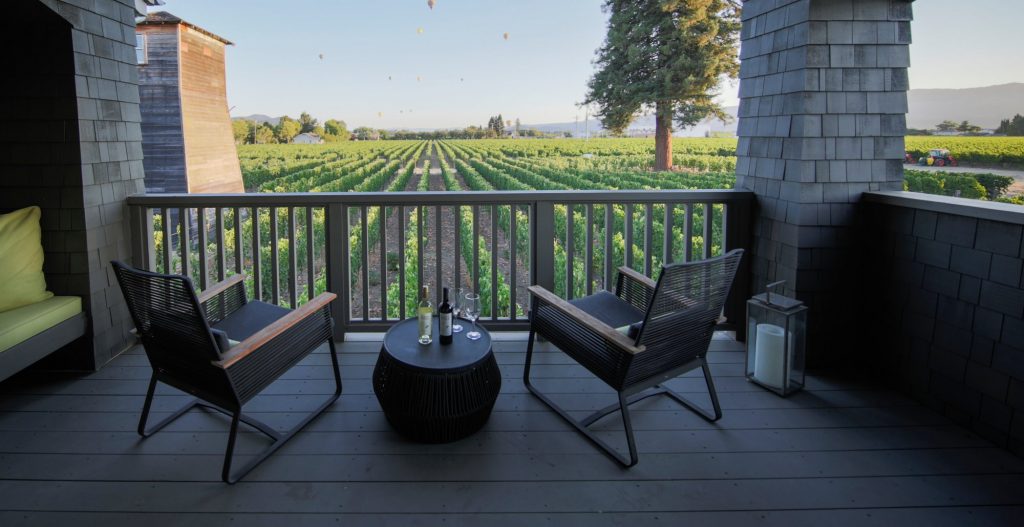
Source: smartertravel.com
The fusion of local cuisine with wine creates a tapestry of flavors that elevates the tasting experience to new heights. Guests at hotels hosting wine tasting events can savor not just the wines but also the culinary delights of the region, enhancing their understanding and appreciation of both. The right pairing can transform a simple meal into a memorable experience, showcasing the rich agricultural traditions and cultural heritage of the area.Incorporating local cuisine into wine tasting events not only celebrates regional flavors but also deepens the connection between food and wine.
When guests are presented with dishes that have been thoughtfully paired with specific wines, it enhances their sensory experience. The taste of food can influence the perception of wine and vice versa, creating a harmonious balance that pleases the palate. By showcasing local dishes alongside regional wines, hotels can offer guests an authentic taste of the area, making their stay more memorable.
Popular Food and Wine Pairings
Understanding which local dishes pair best with specific wines can greatly enhance the tasting experience. Below is a table highlighting some popular food and wine pairings specific to the region that hotels can consider when organizing their wine tasting events.
| Food | Recommended Wine |
|---|---|
| Grilled Lamb Chops | Syrah/Shiraz |
| Fresh Oysters | Sauvignon Blanc |
| Cheese Platter | Chardonnay |
| Wild Mushroom Risotto | Pinot Noir |
| Beef Tacos | Malbec |
| Chocolate Fondant | Port Wine |
Hotels can enhance their wine tasting events by incorporating local flavors through various means. Collaborating with local chefs to create a menu that highlights regional specialties can provide guests with a unique culinary experience. They can also host cooking demonstrations that showcase how to prepare local dishes, accompanied by expert guidance on wine pairings. By emphasizing locally sourced ingredients and wines, hotels can create a rich narrative that connects guests to the land, its people, and the traditions that define the region’s cuisine and wine culture.
In crafting a memorable wine tasting experience, it is crucial to remember that the interplay of food and wine can evoke emotions and create lasting memories, making each sip and bite a moment to cherish.
Guest Feedback and Experience Improvement
Collecting guest feedback is a crucial element in enhancing the experience of wine tasting events at hotels. Guests’ insights provide valuable information about their preferences, experiences, and areas for improvement, helping hotels to tailor their offerings more effectively. By actively seeking feedback, hotels can foster a sense of community and connection with their guests, showing that their opinions matter.A systematic approach to analyzing guest feedback is essential for continuous improvement.
This can be achieved through various methods that ensure comprehensive data collection and analysis. Below are steps hotels can implement to effectively analyze feedback:
Feedback Collection Methods
To improve the wine tasting experience, it’s important for hotels to gather feedback through multiple channels. Establishing a robust system for collecting guest opinions can include:
- Post-Event Surveys: Distributing digital surveys via email after the event allows guests to share their experiences and suggestions in a structured manner.
- Comment Cards: Providing physical comment cards at the venue encourages guests to leave spontaneous feedback immediately after the tasting.
- Online Reviews: Monitoring online review platforms gives insight into broader perceptions about the wine tasting events and can highlight specific strengths or weaknesses.
- Social Media Engagement: Encouraging guests to share their experiences on social media can yield informal yet honest feedback, expanding reach and visibility.
Analyzing feedback effectively requires categorizing responses to identify common themes and actionable insights. This process might include:
Feedback Analysis Techniques
Analyzing the collected feedback can lead to significant insights and improvements. Here are methods for effective analysis:
- Thematic Analysis: Grouping feedback into categories such as service quality, wine selection, ambiance, and food pairings to identify recurring themes.
- Sentiment Analysis: Using tools to gauge the overall sentiment expressed in guest reviews, helping to quickly identify positive and negative trends.
- Benchmarking: Comparing feedback scores against industry standards or competitor offerings to identify areas where enhancements can be made.
- Follow-Up Interviews: Conducting short interviews with selected guests can provide deeper insights into specific feedback points.
Real-life examples illustrate how guest feedback has led to enhancements in wine tasting offerings. One hotel found guests frequently mentioned the lack of local wine options. In response, they revamped their tasting menu to feature exclusively local vineyards, which significantly increased guest satisfaction ratings. Another property received feedback regarding the pace of the event; they adjusted their scheduling to incorporate more time for mingling, leading to a more relaxed atmosphere and improved guest engagement.By valuing and incorporating guest feedback, hotels can create memorable wine tasting experiences that resonate deeply with their guests, leading to repeat visits and positive word-of-mouth recommendations.
Final Summary
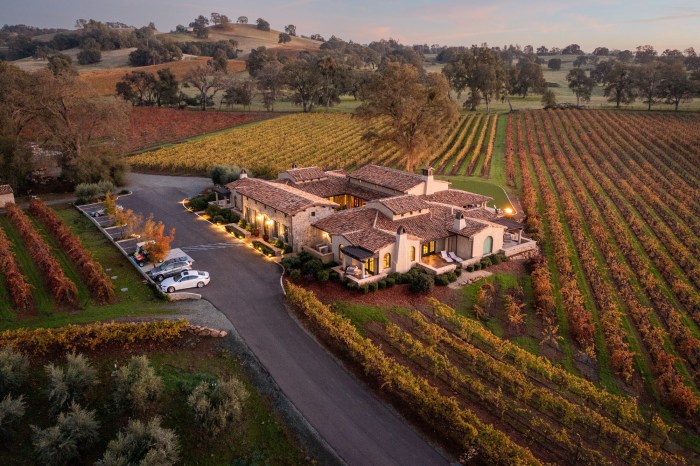
Source: vinesmart.com
In summary, Hotels with Wine Tasting Events and Vineyard Access provide a remarkable opportunity to explore the world of wine. By blending luxurious accommodations with vineyard experiences, these hotels create cherished moments for their guests. Whether you are a seasoned connoisseur or a curious newcomer, the joy of tasting fine wines in beautiful settings is truly unparalleled.
FAQ Guide
What should I wear to a wine tasting event?
Dress comfortably but neatly, as some locations may have a specific dress code.
Are children allowed at wine tasting events?
Generally, children are not allowed at wine tasting events, but some hotels may offer family-friendly activities nearby.
How can I book a wine tasting event at a hotel?
You can usually book through the hotel’s website or by calling their customer service for more information.
Do I need to make a reservation for wine tasting?
It is often recommended to make a reservation in advance to ensure availability during busy times.
Can I buy wine at the hotel after tasting?
Many hotels offer the option to purchase wines featured in the tastings, allowing you to take a piece of the experience home.
